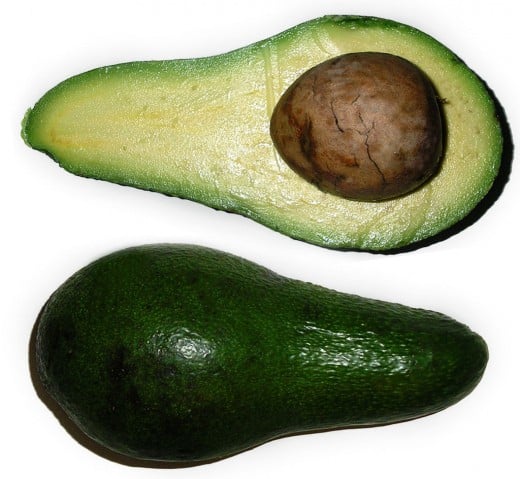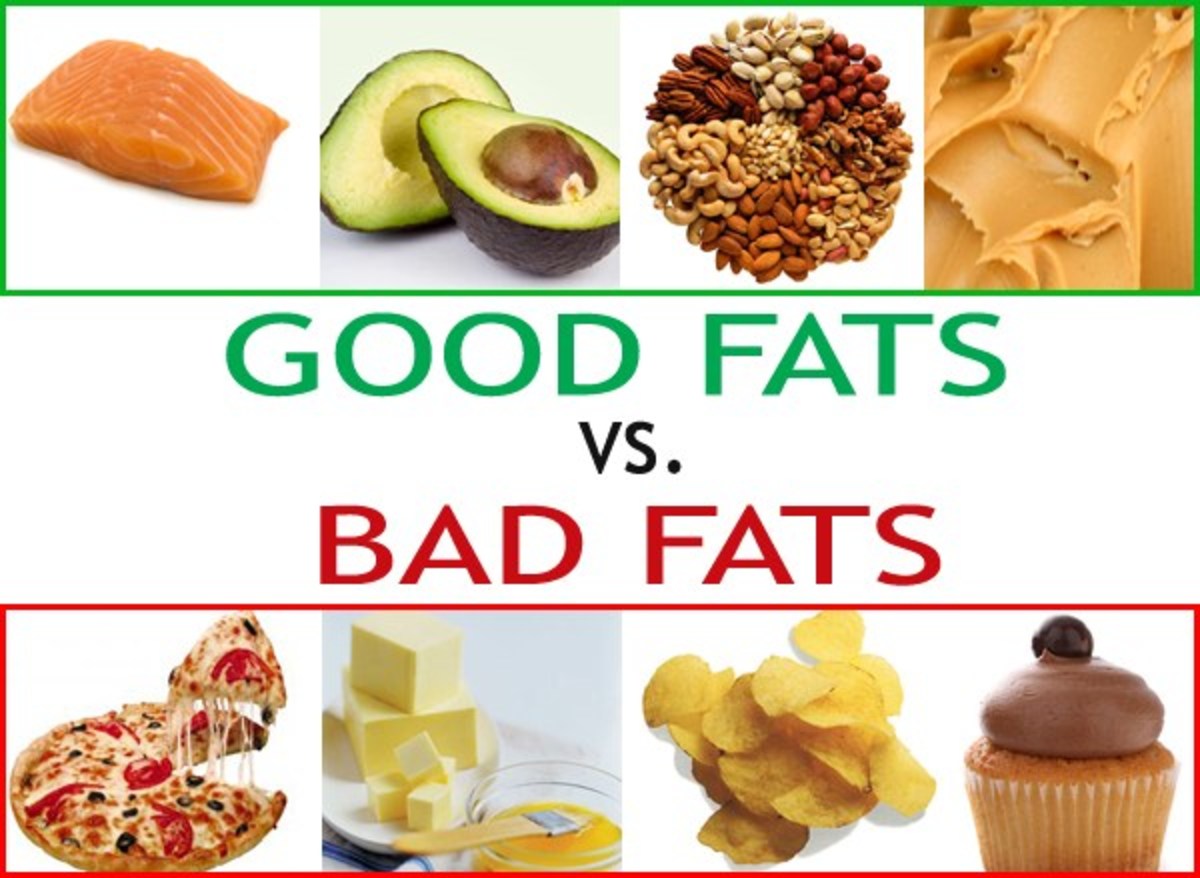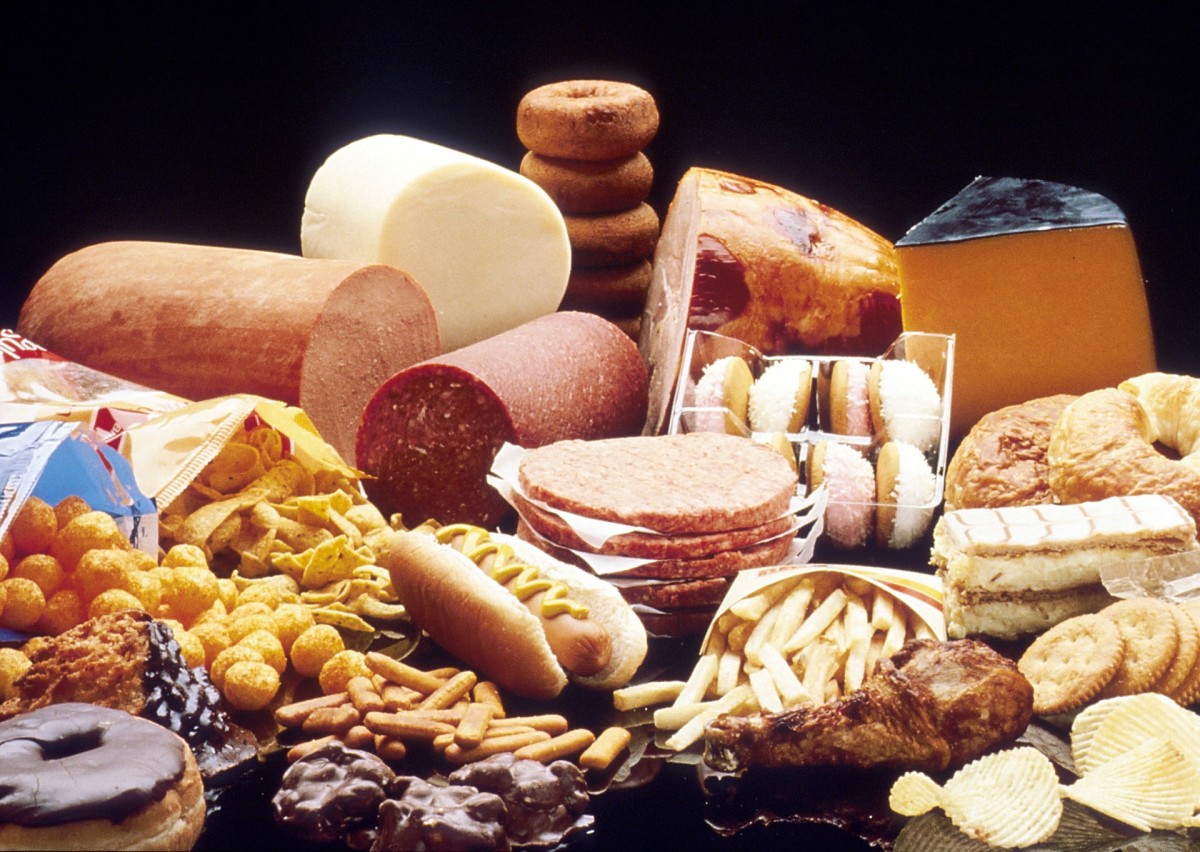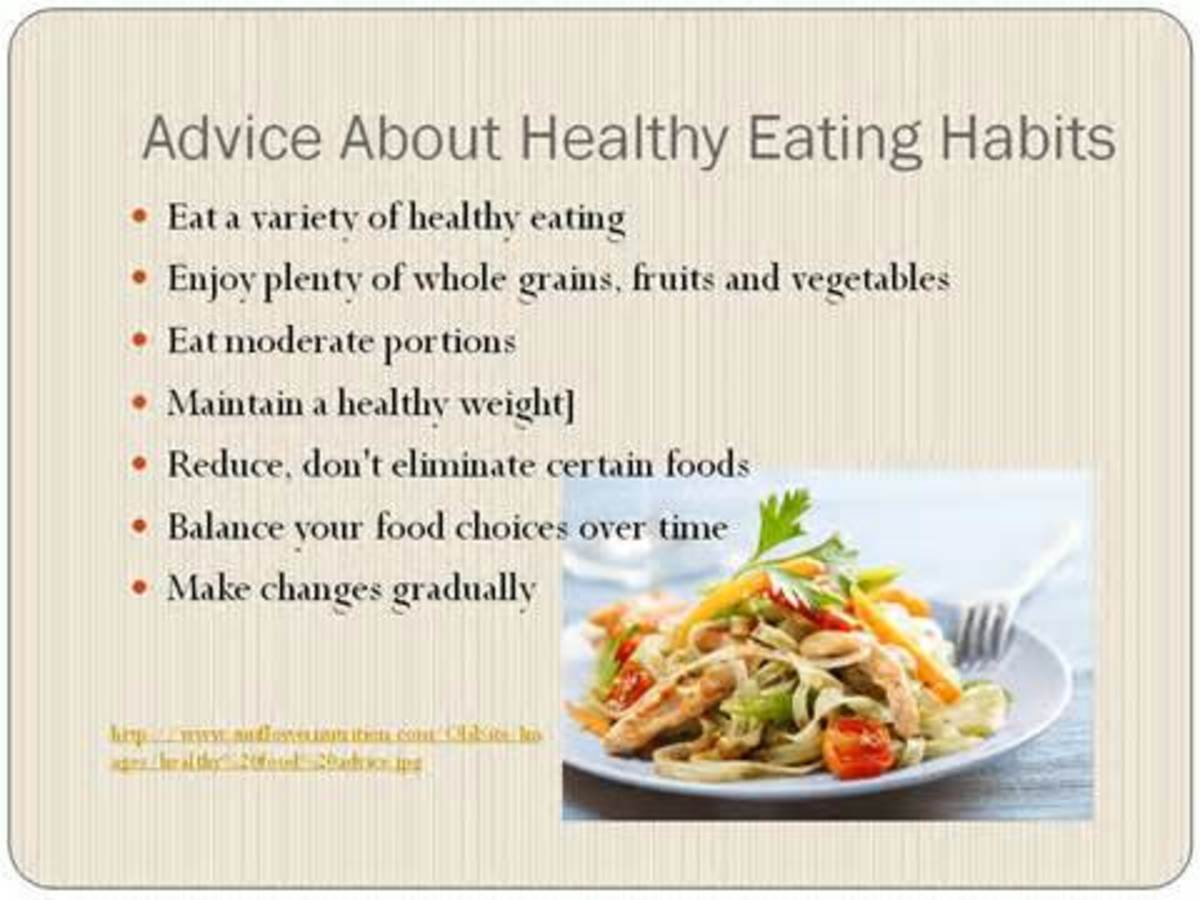Eating More Fat: A Key to Good Health
What is Fat?
Fat is one of the three main macronutrients, the other two being protein and carbohydrates. They are esters of fatty acids - which are a group of long chain organic acids formed with glycerol. Glycerol is an alcohol, and a fat is formed when the OH group reacts with a fatty acid. They are insoluble in water.
Unlike protein and carbohydrates, which contain four calories per gram, fats contain nine. This fact, perhaps more than any other, has been misused to exploit misinformation about the merits of eating adequate fat in your diet.

Why is Fat So Important?
Fat is an essential macronutrient for every single cell in our bodies. Not just fat cells, but every cell. It is important to maintaining cell membranes, among other functions. The human brain itself is 60% fat.
Without them, your body's ability to utilize another macronutrient, protein, is severely limited. For instance, eggs are known to contain "perfect" proteins. Throw out the concept of eating only egg whites and throwing away the yolk. Without the fat, you are losing a lot of accessibility to those proteins.
What Happens if You Don't Eat Enough Fat?
Fats are one of the primary movers in managing your body's inflammation. Without fat, your body at times may not inflame adequately when necessary to fight infections, nor anti-inflame when it needs to.
Fats should be your prime energy source. They are "smooth burning", meaning they do not affect your blood sugar the same way carbohydrates do. When you eat a high carbohydrate diet, you will be prone to bursts and crashes, both in energy and in blood sugar.
They slow the rate of absorption of food. A meal of primarily carbohydrates will be absorbed very quickly, hence the burst and the subsequent crash of energy and the quick spike of insulin and blood sugar. That causes people to feel hungry again much sooner, and actually consume more calories. A diet high in fat will keep you satiated for a longer period of time.
Four of the essential vitamins - A, D, E, and K, are fat soluble. That means if you wake up at night on an empty stomach, and drink a glass of skim milk, you will absorb none of the Vitamin A, and none of the Vitamin D. You will also absorb less of the calcium, as fat also acts as a facilitator for that element as well.
Basic Types of Dietary Fat
Trans fats include conjugated linoleic acid, also known as CLA, and also vaccenic acid. These are the fats with the worst reputation of all dietary fats. They have been most linked with the development of excessive inflammation in the body and heart disease.
Until modern times, the only trans fats that humans ate were those from animals. However, today, most trans fat is created from processing. Unsaturated vegetable oil is widely used in the processing of food, and partially hydrogenating these unsaturated fats results in the fats that we think of when we hear the phrase "trans fats". The fact is, natural CLA has a lot of nutritional merit, and the distinction needs to be more effectively made rather than lumping them all together.
Saturated fats contain only saturated fatty acids, that is, they have hydrogen atoms completely surrounding each carbon atom where available. There are no double or triple carbon bonds in the chain. Some common examples of these fatty acids are lauric, butyric, myristic, palmitic, and stearic. These also get an undeserved bad reputation.
Beginning in the later half of the 20th century, saturated fats were maligned as heart disease causing, cholesterol raising molecules. While they can indeed raise the LDL, or "bad", cholesterol, they also correspondingly raise the "good" HDL. The sharp rise in heart disease did not come until the 1970s when the low fat, high carbohydrate diet was being pushed by the USDA and the AMA. Saturated fats are in fact a crucial source of energy, and have been eaten by humans since the beginning of our species. There is no evidence that our genetic makeup has changed to make this source of energy suddenly deleterious to our health. Half of our cell membranes are composed of saturated fats. And due to the fact that they are saturated, they do not become oxidized.
Monounsaturated fats are the first type of unsaturated fats. They are prefixed "mono" because they have one double carbon bond in their chain. They are found in many plants and nuts. They lower your LDL, and increase your HDL levels. This has the effect of decreasing your risk of heart disease. These are one of the two types of fats that are commonly known as "good fats".
Polyunsaturated fats are the second type of unsaturated fats. They, conversely, are prefixed "poly" because they have more than one double carbon bond in their chain. They are located in fish, nuts, leafy greens, algae, and seeds. They are also known as one of the "good fats". Two main types of polyunsaturated fats are Omega-3 and Omega-6.
In Conclusion
Fats should make up around 40-45% of your total calories. The most important thing to take into account when consuming your fats is the source. Fats can be transformed into harmful molecules based on their processing. The best way to avoid consuming bad fats is to avoid or minimize your intake of processed items. In their stead, opt for whole, unadulterated food from the best sources you can find. Examples of these include, grass fed, free range beef, eggs from pastured chicken, avocados, and unprocessed butter.










